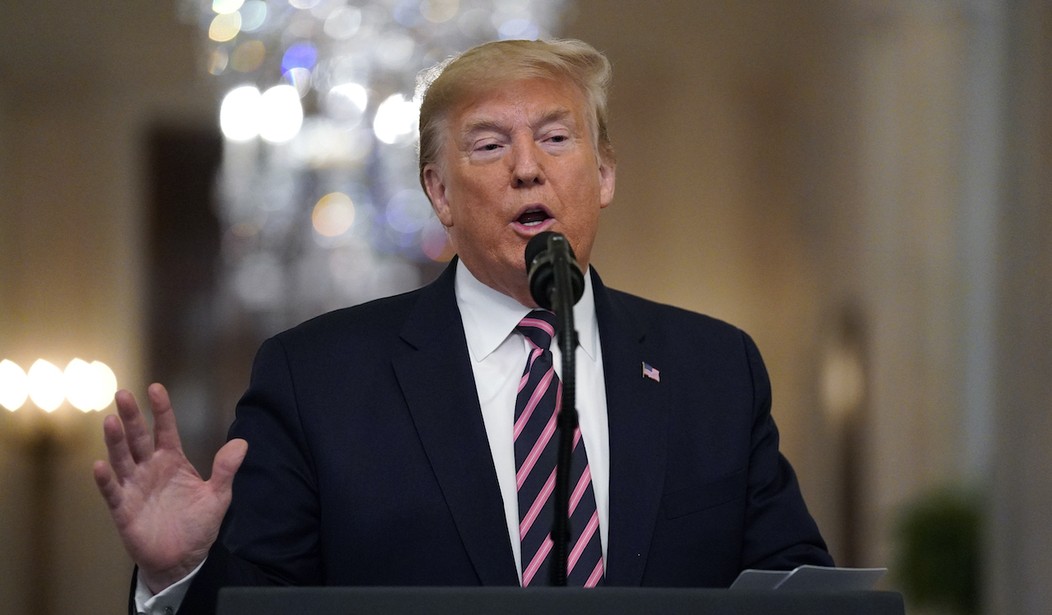Through his efforts to clean up the Postal Service, the Consumer Financial Protection Bureau, the EPA and others, President Trump has demonstrated a genuine interest in digging into the details of government to root out cronyism and make agencies more responsive.
It could be time to apply some scrutiny along those lines to the Surface Transportation Board.
Although most of the federal government is seeing a sharp reduction in regulations – the president’s press office said he has eliminated 22 for every one he has added – the Surface Transportation Board, which regulates the economics of freight railroads, is looking to increase government meddling in private business.
Federal government micromanagement from the early 1920s to the late 1970s almost drove the American railroad industry to extinction. A measure signed by President Carter in 1980 partially deregulated the industry but placed what was left of regulations under the Interstate Commerce Commission.
The Interstate Commerce Commission itself later failed, and the Surface Transportation Board was created to set rates in areas where there are few market choices, review mergers, resolve rate disputes and work to merge the interests of shippers – in particular agricultural, energy and manufacturing interests – and railroads.
The agency had been relatively quiet in recent years—deregulation was working after all; shippers enjoyed rate decreases of 45 percent and railroads returned to profitability. But a new group of appointees wants to swing into action on behalf of shippers with a raft of major proposals.
The most dangerous of the proposals the Surface Transportation Board is considering threatens to put a ceiling on how much revenue railroads can earn.
The 1980 legislation provided for the concept of ‘revenue adequacy’ – the agency would permit rate increases without formal approval to ensure railroads could make adequate revenue to pay their bills and reinvest in their tracks and equipment.
Recommended
Now, the agency is considering the concept to limit rates – railroads deemed to be making enough money would not be allowed to raise rates even to replenish and replace equipment, build new track or otherwise expand.
Freight rail is a capital-intensive business. Railroads have spent $25 billion on infrastructure and safety improvements on the nation’s 140,000 miles of freight railroads in just the last five years. It earns returns on investment of 5 percent or less, which is ironic since some of the most vocal members of a coalition pushing the Surface Transportation Board to make this change earn as much as 77 percent returns on investment themselves.
Now, a federal agency in the deregulatory age of Trump wants to ensure railroads don’t earn too much – and it will determine what constitutes too much, according to a formula it may or not recalculate – and use its power to regulate prices. If this were to be implemented, it would reduce investment in safety, equipment and, critical at this point in the industry’s history, automation.
Researcher Roslyn Layton says not only should the answer be no on the regulations, but President Trump should consider disbanding the agency altogether – just as Alfred Kahn disbanded the Civilian Aeronautics Board after the airlines were allowed to set their own prices.
Disbanding the agency probably is out of the question, because shippers and railroads want it to resolve rate and service disputes and review mergers. But President Trump has signed an executive order that would provide independent agencies such as the Surface Transportation Board with greater oversight through the Office of Management and Budget and its regulatory czar.
President Trump has picked up on an idea proposed by President Reagan but not acted on by him or any following president to subject proposed regulations to a real, robust cost-benefit analysis. Those that didn’t bring more in benefits than they did in costs would not go forward.
Agencies have long had to supply cost-benefit analyses for their proposals, but President Trump’s order allows the Office of Information and Regulatory Affairs to challenge those claims. This forces agencies such as the Surface Transportation Board to justify them.
Rail is a tough, competitive business. It carries 40 percent of the nation’s freight traffic. Its needs are varied and expensive. The notion that its maximum profits should be determined by unchecked regulators does not make sense. Not anytime, but especially in Donald Trump’s deregulated America.

























Join the conversation as a VIP Member